In Europe and Central Asia, COVID-19 responses are reaching the most vulnerable women
Date:
Women who are already facing multiple and intersecting forms of discrimination and inequality will be those most affected by the COVID-19 crisis, which can multiply existing vulnerabilities. Roma women, women with disabilities, older women and women living with HIV face heightened socioeconomic and health impacts and increased risks of gender-based violence.[1] When it comes to economic woes, young women are particularly likely to find themselves out of work and learning, while ethnic minorities and women migrant workers are being particularly affected by work and mobility restrictions.
In response to the needs of women and girls in Europe and Central Asia, UN Women assessed the needs of Albanian women’s rights organizations working to leave no one behind. To connect women living with HIV in Tajikistan, UN Women supported a virtual network of peer psychosocial counsellors, and created a Viber group for women and girls to ask questions or share information. In Ukraine, women’s organizations are raising their voices to ensure that the rights of women veterans, women living with HIV, women with disabilities and Roma women are fulfilled. Meanwhile, in Serbia, UN Women and local partners are delivering essential services, including information, psychological support and counselling for Roma women, women living with disabilities and older women.
UN Women assessed the needs of Albanian women’s rights organizations working to leave no one behind
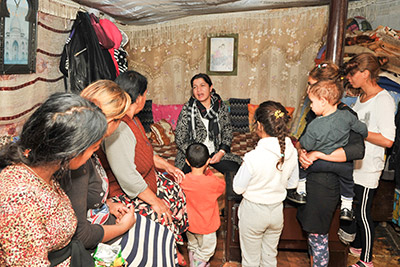
As part of the EU-funded regional programme on Ending Violence Against Women in the Western Balkans and Turkey, UN Women is mapping the needs of women’s rights organizations that support survivors of violence in Albania and are working to ensure the protection and well-being of those who are most vulnerable.
Among them are disabled women and girls. Women with disabilities face a range of barriers in accessing gender-based violence programmes and services, including information in inaccessible formats and lack of transportation to health facilities and women’s centres. Blerta Çani, Executive Director of the Albanian Disability Rights Foundation, recommends that during the COVID-19 pandemic, services that respond to gender-based violence adopt effective and accessible approaches when responding to the needs of women with disabilities and their caregivers.
Manjola Veizi, Head of the National Network of Roma and Egyptian Women, says there has been an increase in violence against Roma women. “In many Roma families, women are the breadwinners. But now they are not working and staying home 24/7 which has increased domestic violence. They do not report abuse because they are scared. They also do not own mobile phones and are not able to go out and reach networks or organizations that provide support,” she says. She also sent an open letter to the Ministry of Health and Social Protection calling on institutions to take appropriate measures to ensure the survival of Roma and Egyptian families, the majority of whom are unemployed and live in extreme poverty.
Read the full story here.
Technology is being used to connect women living with HIV in Tajikistan
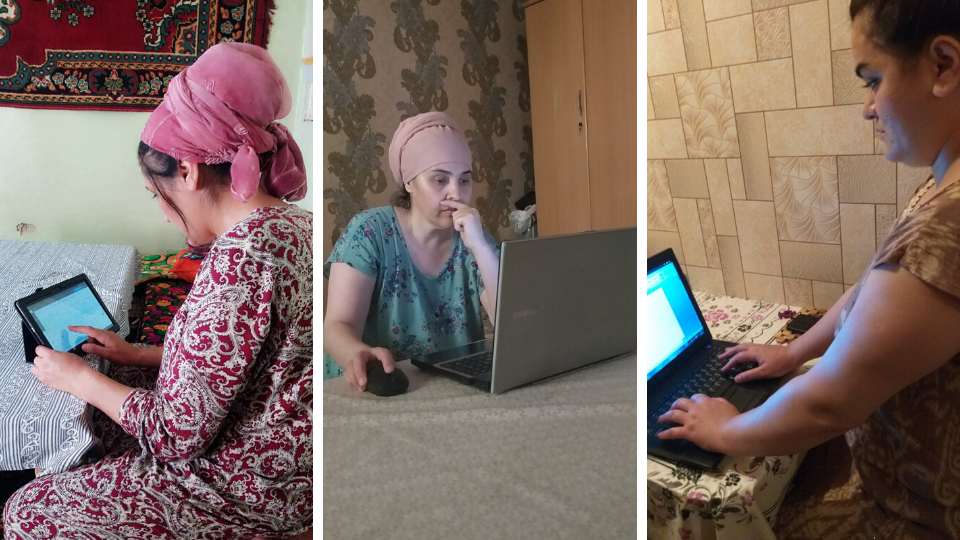
As the COVID-19 crisis unfolds, counsellors in Tajikistan are turning to technology to reach out to women living with HIV, who face particular risks and vulnerabilities due to their compromised immune systems.
In response, UN Women helped to establish and train a virtual network of peer counsellors. UN Women also supported creation of a Viber group for women and girls with HIV who now can post questions and share information on COVID-19. They report daily on the COVID-19 situation in their region, sharing advice, voice notes and videos about handwashing, social distancing, contacts for health care facilities or doctors in their regions and hotlines, etc.
“The creation of this group was very timely – many of us are self-isolating these days and have no source of information other than this group,” says Amina Komilova, a peer counsellor from Dushanbe. “I receive more than 32 calls per day with different questions from our women. Some of those I answer myself; for some, fortunately I can now find the answer from the group.”
Read the full story here.
Ukrainian women’s organizations advocate for the most vulnerable women
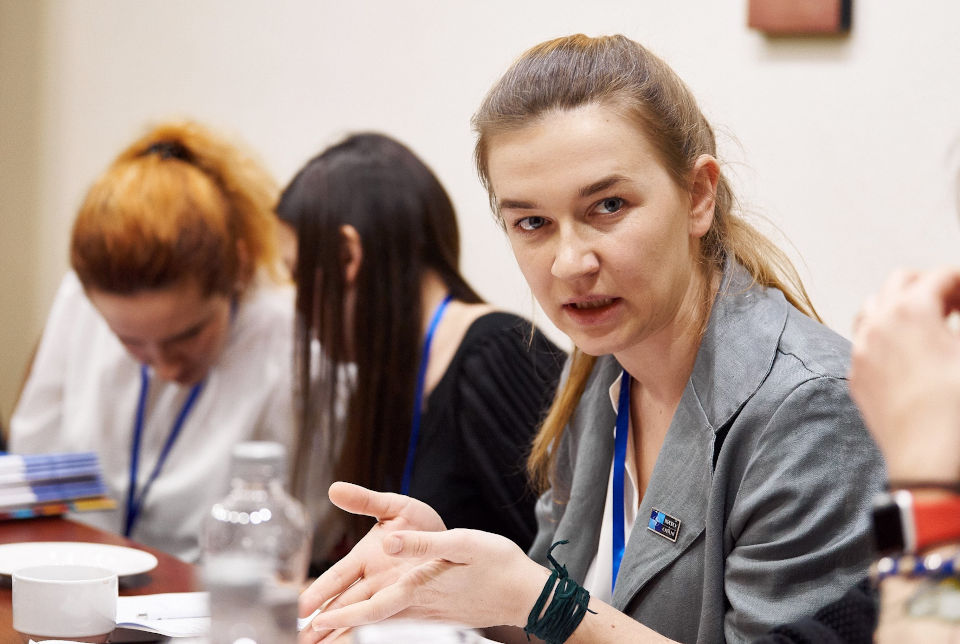
In Ukraine, the pandemic is presenting economic challenges for women veterans, particularly those who have chronic illnesses or a combat-related disability, explains Andriana Susak, who represents Ukraine’s Women Veteran Movement. Some 54,000 women served in the Ukrainian armed forces in 2017. Forced to use military equipment made for men, such as heavy packs, many women veterans now suffer chronic back problems that are rarely addressed, with many ineligible for combatant health benefits or any recovery and transition support.
Valentyna Dobrydina heads the Assembly for people living with disabilities in Ukraine’s Chernivtsi region for an organization called Leader. A wheelchair-user herself, she is advocating for women with disabilities across rural Ukraine to be protected during the COVID-19 pandemic. Recalling the provisions in the Convention on the Rights of People Living with Disabilities, she says: “It is very important to involve women living with a disability in all the decisions that are being made, especially in these times of emergency.”
Many women living with HIV are also at increased risk, because skipping antiretroviral treatments can cause drug resistance, or worse. But Oksana Pchelnikova, the Odessa Regional Coordinator of the organization Positive Women, says accessing the few AIDS centres available to pick up medication or receive counselling is challenging amid confinement, with most users unable to get a taxi or reach the centre by foot.
With many businesses shut down, vulnerable Ukrainians are feeling the blow. “But for Roma women dependent on their daily earnings in markets, trains and cafes, it is even worse as they have little to no chance of finding alternative livelihoods,” says Roma activist, Halyna Yurchenko. As COVID-19 spreads across the country, so does fear, which is fuelling further stigmatization of Roma people. “Nowadays, Roma are also considered as potential spreaders of the virus,” explains Halyna who is helping Roma NGOs mobilize much-needed humanitarian assistance and information to Roma families in the settlements.
Read the full story here.
Women’s organization sets up a call centre to support vulnerable Roma women
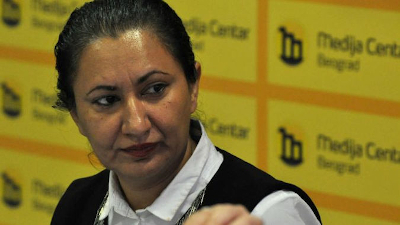
Slavica Vasić is chair and co-founder of the BIBIJA Roma Women's Centre in Serbia, a partner of an EU-UN Women regional programme in the Western Balkans and Turkey.
“In Serbia, 25,000 Roma people live in informal settlements without adequate living conditions, including access to running and clean water,” she explains. “They are often confined to overcrowded conditions with many family members living in a small space where it is impossible to effectively implement isolation measures. So, this population is particularly vulnerable and women and children, especially young children, pregnant women and nursing mothers, are the most vulnerable. … Violence against women and children during the Coronavirus pandemic have [also] increased.”
Vasić says her organization has significantly reduced its activities on the ground, but they set up a call centre to support Roma women with their questions and needs related to the pandemic.
Read the full story here.
Serbian NGO provides psychological support and essential information for women with disabilities
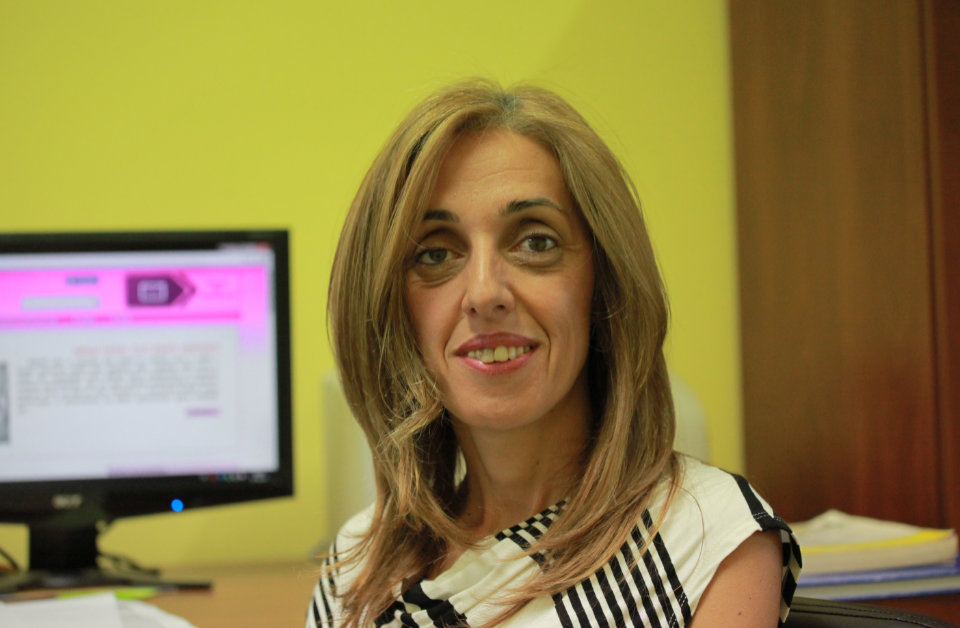
“Healthcare is already largely inaccessible to women with disabilities, a reality that has intensified in the circumstances of the pandemic,” says Svjetlana Timotic, founder of the Out of Circle-Vojvodina NGO from Serbia, an implementing partner of the EU-UN Women regional programme on ending violence against women in the Western Balkans and Turkey. She says the COVID-19 pandemic has reinforced the deeply rooted marginalization that women with disabilities face at all levels.
“Women with disabilities, systematically denied freedom of movement, are now faced with the fact that all those things they were told were impossible to provide to them are now available in alternative forms to serve the general population in quarantine – online jobs, online schools, home delivery, virtual cultural programmes,” she says. “There are also disruptions to communication; for example, persons with hearing impairments cannot read lips in an environment where everyone is wearing masks.”
Her organization is providing psychological support and publishing up-to-date information on its Disability Portal on the impacts of the pandemic on people with disabilities, as well as updated contact lists of organizations providing support and services for women with disabilities in situations of violence.
Read the full story here.
Serbian NGO counsels older persons in need and calls for the redistribution of unpaid care work
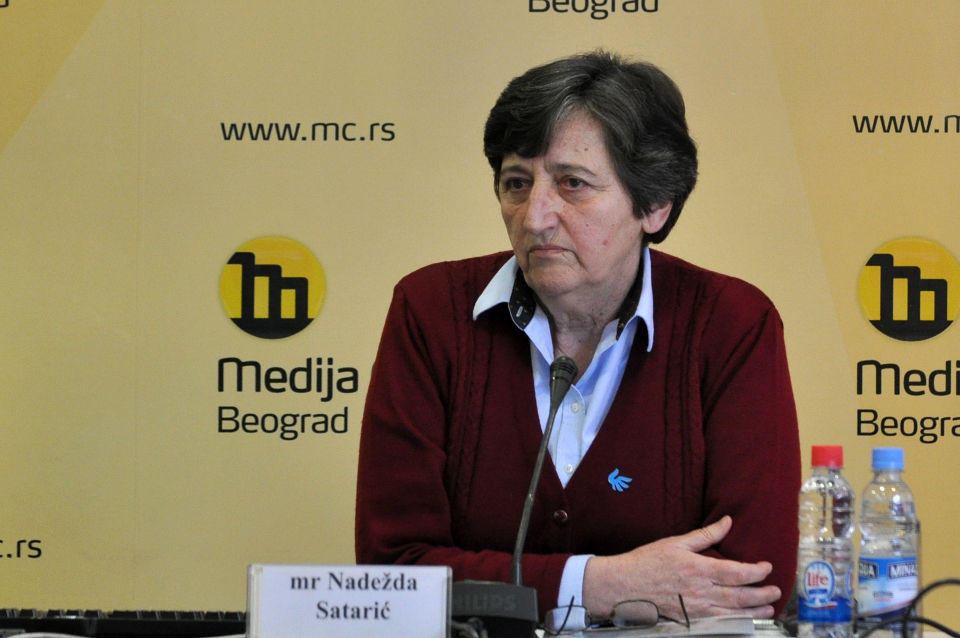
Nada Sataric, founder of Amity NGO, is a vocal advocate for the rights of older persons in Serbia, and older women in particular. With the COVID-19 outbreak, existing vulnerabilities have deepened. Serbia introduced a complete lockdown for people over 65 on 17 March 2020. She says many older women are disproportionately affected and now feel even more isolated and anxious, and “loads of housework now fall on them.”
Under a UK-UN Women programme on the redistribution of unpaid care work, Amity has set up a counselling centre providing phone support to older persons in need – and also to their caregivers, who are often women.
“It turns out that most of the calls we get are from either older or younger women who care for their older relatives and family members, who found themselves in an endless cycle of cooking, cleaning and care at home during the lockdown. Now is the time to acknowledge this unpaid care work and redistribute this burden, which can adversely affect a woman’s health,” says Sataric.
Read the full story here.
[1] UN Secretary-General’s policy brief: The impact of COVID-19 on women